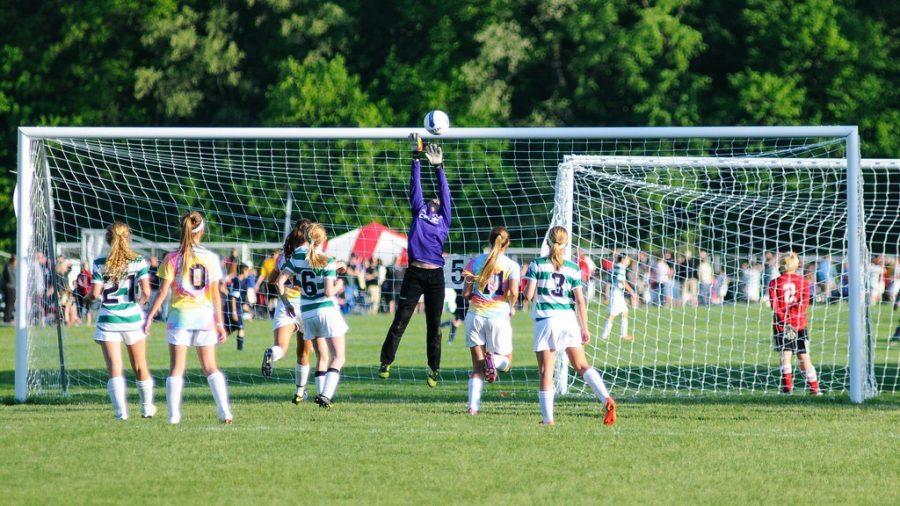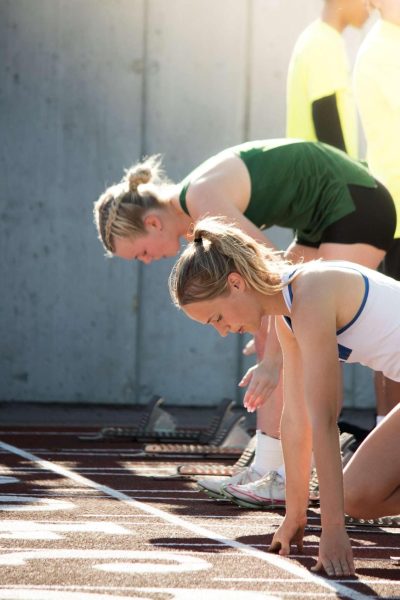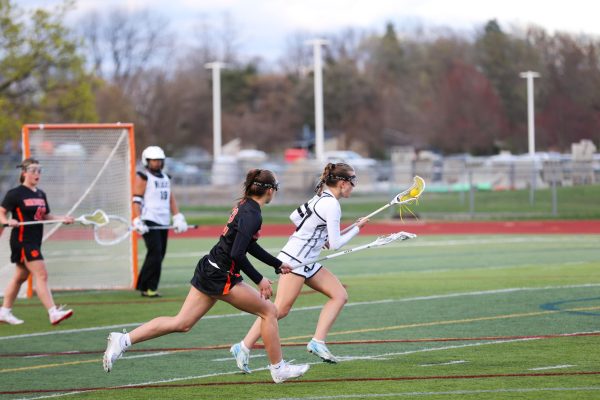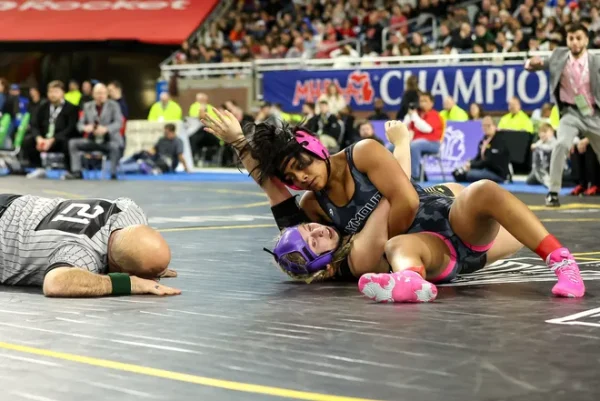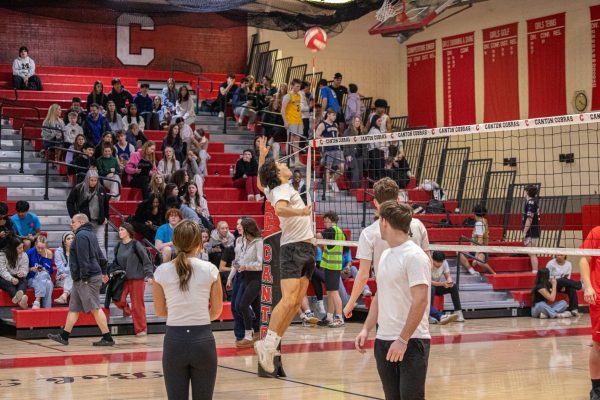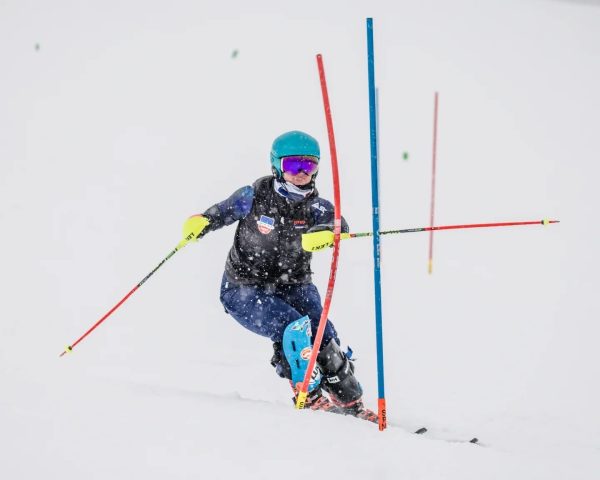Goalies need focus and strong stomachs
I step through the cone gate with muddy cleats and get my small gloved hands up, thumbs and pointer fingers forming a “W” shape. I’m ready. That is, until my coach kicks the ball at me. It comes soaring toward my face and I panic, throwing my arms up for protection and forgetting my ready position altogether. “Come on youngers, remember your goalie focus!” Coach George instructs the group as the ball bounces off my body and drops in front of me.
When goalies begin their training, they are constantly being reminded to keep their “goalie focus,” but the keepers under 13 years old don’t realize how important that phrase really is. Isabella Binkley, a Huron senior and varsity goalkeeper, says that she started playing goal full time (rather than only playing for half of a game) at 12 years old. “I loved it and there was no going back to being a field player after that. Training as a goalie is really different than training to play field. It requires good mental focus, something I didn’t have at the start,” she says.
The mental concepts in goalie training can take the longest to learn and can be the hardest to execute. Bravery practices are especially difficult because they go against your most basic human instincts; you have to face the forward that is sprinting toward you without flinching, backing up, or closing your eyes despite knowing they’re about to pummel a ball at your face. I remember one of my first bravery practices; I was probably around 12 years old and still painfully shy. Coach George told my group of youngers to lay on the ground on our backs. Confused, we followed his instructions and laid down like a bunch of sardines in a row. George picked up a ball, approached the first player, and told him to tighten his stomach. He then proceeded to chuck the ball right at the kid’s gut. Needless to say, I was terrified. When it was my turn, I tightened up my stomach and prepared my mind for the possibility of extreme pain. I watched the ball get released from George’s hands and fall to my body. I felt the impact and heard a soft thump sound, but shockingly there was no pain and I was feeling like I could take on anything.
In addition to bravery, goalies must learn how to erase their mistakes from their minds during a game. Getting scored on is obviously a huge disappointment, but goalkeepers can’t let it affect their playing. According to Binkley, it is “easy to lose focus and make mistakes” after getting scored on, but it is important to regain control quickly.
To help goalies do this, Tomasso coaches a strategy that he calls the three second memory. “After every goal, take three seconds to think,” he says. “One: what happened? Two, what do I need to fix? Three, forget and move on.” It can be really difficult, but goalkeepers must get out of their heads during games except for those three seconds. Overthinking makes you slow to make a decision and that can be your biggest mistake as a keeper.
Being a goalie can put a lot of weight on your shoulders, especially in situations like penalty kicks. Tomasso reminds keepers that they can’t blame themselves for PKs because it’s nearly impossible for them to know for sure where the forward is going to shoot. “The goalie isn’t supposed to make the save; the forward is supposed to score,” he says. Goalies are coached to make their best guess by watching the eyes of the shooter as well as the angle of their hips and the placement of their plant foot. Binkley says that ultimately for any goal it is important to remember that it isn’t one person’s fault and that you can’t put all that pressure on yourself as the keeper.
Being a goalkeeper is tough but extremely rewarding for both the player and the coach. I have grown as a person since my start and Coach George definitely has seen the difference. He recalls getting a phone call from my team’s coach one year: “Coach Pete was super excited, telling me that he wished I was there because you were having the game of your life. I was so proud and I knew in that moment how far you had come as a goalkeeper.” Not only have I grown as a player, but as a person off of the field. I am much more outgoing and more of a leader, which I learned from directing my team on the field during games.
“Nice goalie focus, guys!” I yell out to the new youngers as I help Coach George train them to dive. I fix a nine year old’s hand positioning as I pass by and watch as she gets up and executes another near-perfect dive. As I move around from cone gate to cone gate showing them examples and giving them tips on how to get better, I can’t help but wonder how each of these kids will develop by learning the position I have come to love.
Your donation will support the student journalists of Salem High School - MI. Your contribution will allow us to purchase equipment and cover our annual website hosting costs.


